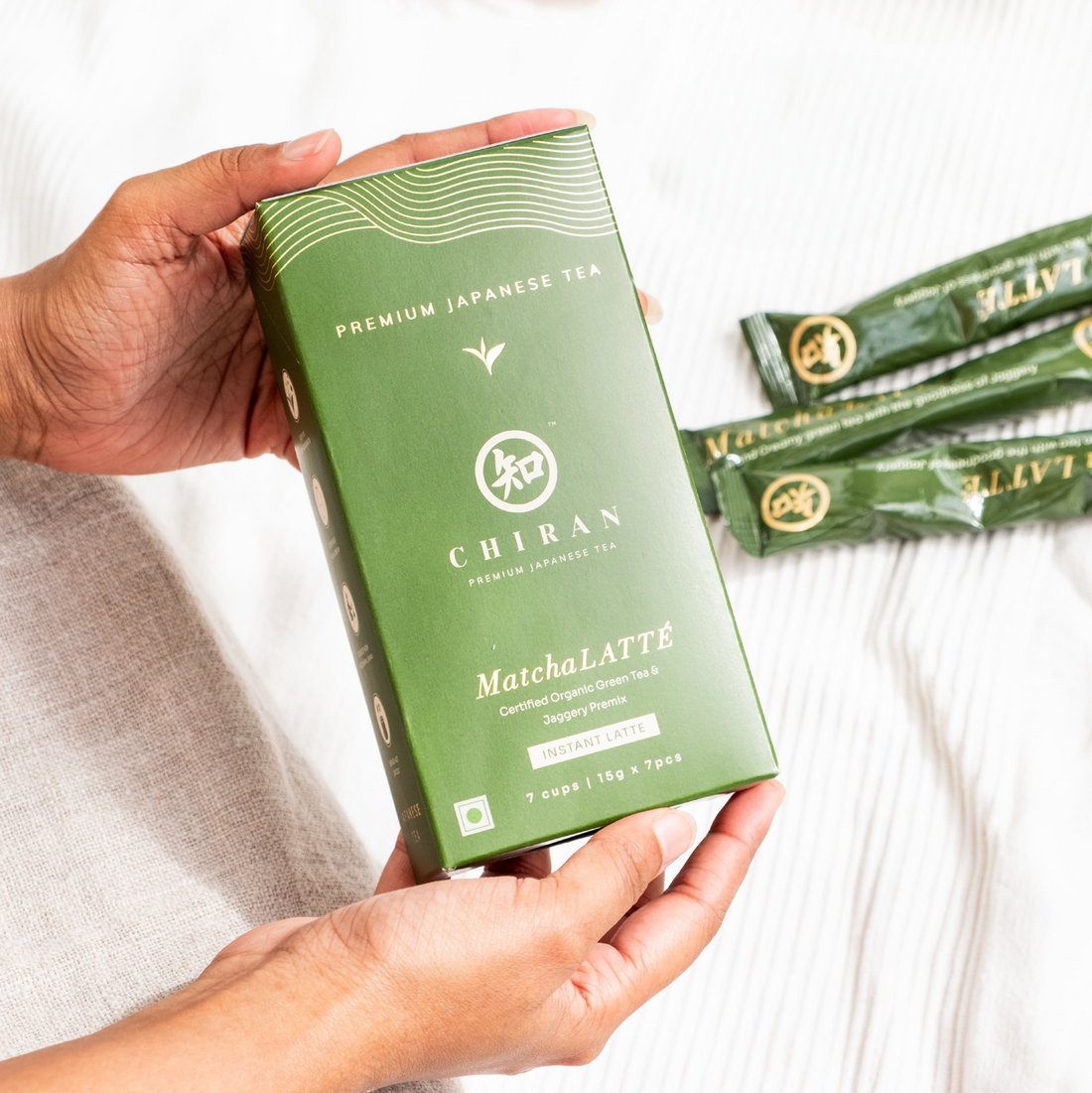Introduction: What to Expect When You Sip Matcha
Imagine you're sitting in a quiet Japanese café, about to try matcha for the first time. You've read about its health benefits and seen the vibrant green photos online. But your first sip surprises you — it's earthy, even a little bitter. You're left wondering: Is matcha supposed to taste like this?
You're not alone. Many first-time matcha drinkers are caught off guard by its complex taste. In this guide, we’ll explore why matcha can taste bitter, what causes that bitterness, and how to make your matcha taste smoother and more enjoyable.
What Is Matcha and Why Is It Bitter Sometimes?
Matcha is finely ground green tea powder made from shade-grown tea leaves. Since you’re drinking the entire leaf (not just steeping it), matcha has a much stronger flavor than regular green tea.
Natural Flavor Profile of Matcha:
-
Umami-rich: Savory and deep
-
Grassy & Earthy: From high chlorophyll levels
-
Slightly Astringent: A touch of bitternessThat slight bitterness? It’s natural — but too much of it usually means low-quality matcha or incorrect preparation.
Matcha Grades: Ceremonial vs Culinary
Grade |
Taste Profile |
Best Uses |
Ceremonial Grade |
Smooth, sweet, less bitter |
Traditional tea, drinking straight |
Premium Grade |
Balanced, mild bitterness |
Lattes, daily drinking |
Culinary Grade |
Strong, astringent |
Baking, cooking, smoothies |
Tip: Always choose ceremonial grade matcha if you want a smooth and enjoyable taste experience.
Why Does Your Matcha Taste Bitter?
1. Low-Quality Matcha
Cheap or old matcha is made from mature leaves with stems and veins — they’re more bitter and less flavorful.
2. Boiling Water Burns Matcha
Water above 80°C (175°F) releases excessive bitterness. Always let boiling water cool slightly before whisking matcha.
3. Improper Preparation
-
Not sifting: Clumps create bitter pockets
-
Poor whisking: Leaves gritty, uneven flavor
-
Wrong tools: Use a bamboo whisk (chasen) for best results
4. Oxidized or Expired Matcha
Matcha should be bright green. If it’s dull, it’s probably oxidized and bitter. Store in an airtight container away from heat and light.
How to Make Matcha Taste Better
✅ Use the Right Water Temperature
-
Ideal: 70°C–80°C (158°F–176°F)
✅ Sift Before You Whisk
-
Removes clumps and ensures smooth mixing
✅ Master the Whisking Technique
-
Whisk in a "W" or zig-zag motion to create foam
✅ Try a Matcha Latte
-
Mix with oat or almond milk + honey or maple syrup
✅ Use High-Quality Matcha Only
-
Ceremonial-grade matcha like Chiran Matcha has naturally less bitterness
✅ Experiment With Flavor Enhancers
-
Add a splash of lemon juice, cinnamon, or vanilla
The Science Behind Matcha's Flavor
-
L-Theanine: Adds sweetness and calm energy
-
Catechins: Antioxidants that provide astringency (bitterness)
-
Chlorophyll: Gives matcha its green color and earthy notes
High-quality matcha like Chiran Matcha is grown in the shade to increase L-theanine, giving it a smoother, sweeter taste.
Fun Ways to Enjoy Matcha Without Bitterness
1. Hot or Iced Matcha Latte
-
1 tsp matcha + 2 oz warm water + milk of choice + sweetener
2. Smoothies
-
Blend matcha with banana, berries, or mango
3. Desserts
-
Add to cookies, pancakes, or even tiramisu
4. Matcha Mocktails
Mix matcha with soda, mint, and lemon
FAQs – Matcha Bitterness Explained
Q: Is matcha naturally bitter?
A: Slightly, yes — but high-quality matcha like Chiran Matcha is smooth and umami-rich, not harsh.
Q: Why does my matcha taste too bitter?
A: Usually it’s the water temperature, old matcha, or a low-grade product.
Q: Can I add milk or sweeteners?
A: Absolutely. A matcha latte or flavored smoothie is a great beginner-friendly option.
Q: What matcha is best for drinking?
A: Always look for ceremonial grade matcha — like the ones offered by Chiran Matcha, known for purity and smooth taste.
Q: How should I store matcha?
A: Keep it in a cool, dark place in an airtight container to prevent oxidation.
Final Takeaway: Bitterness Isn’t a Bug — It’s a Sign
Matcha is not just another green tea. It’s a reflection of quality, tradition, and preparation. With the right matcha, like Chiran’s ceremonial grade, and a few simple tips, you'll enjoy a tea that’s smooth, vibrant, and never harsh.
Next Time You Sip… Remember: Slightly bitter is natural. Overly bitter? That’s fixable.
Want the Smoothest Matcha Experience?
Try Chiran Matcha — Fresh from Japan. Minimal bitterness. Maximum calm.

